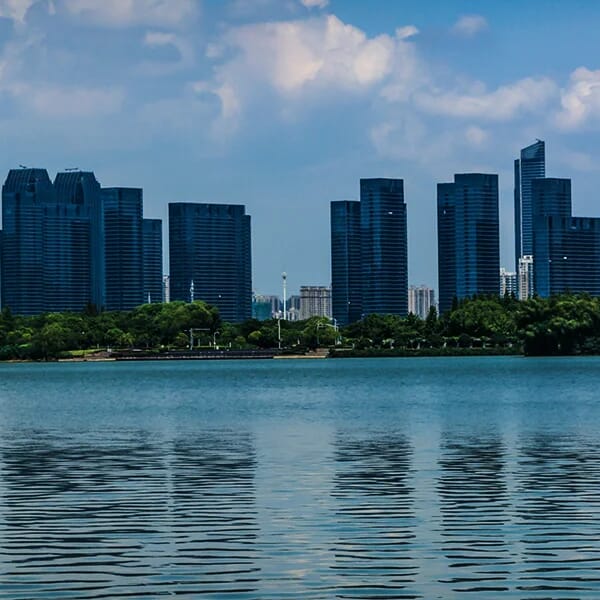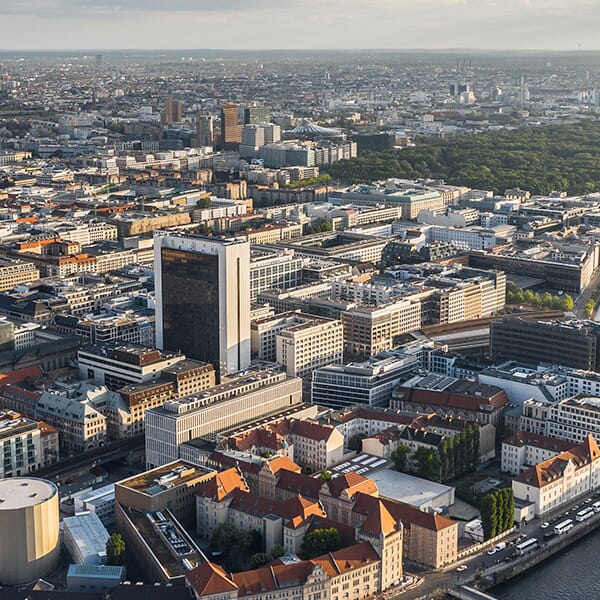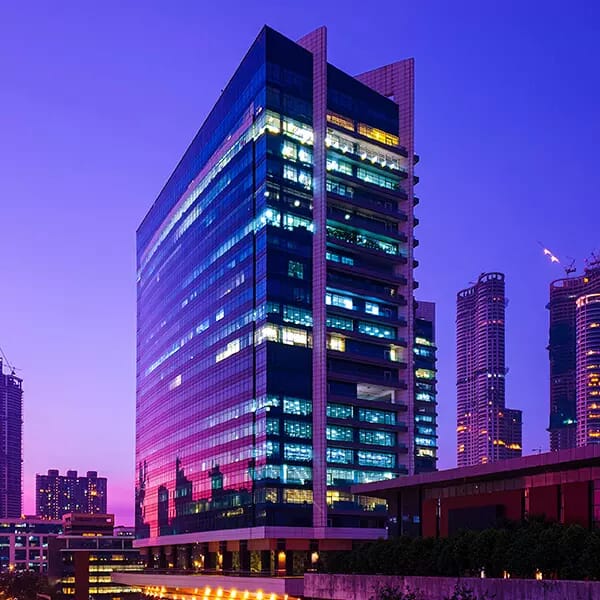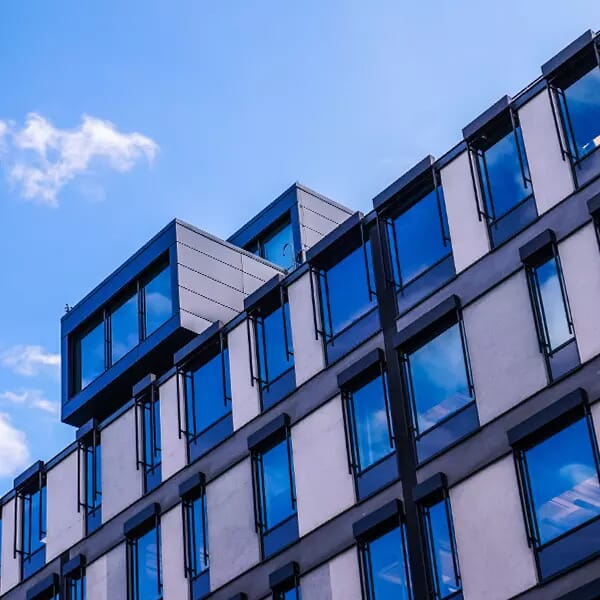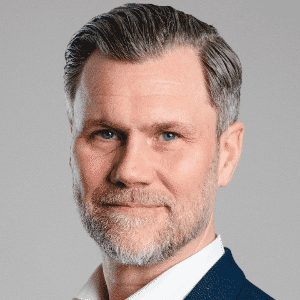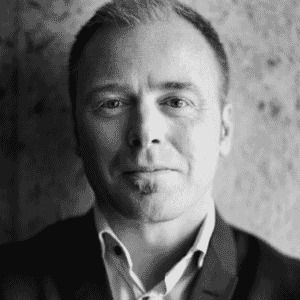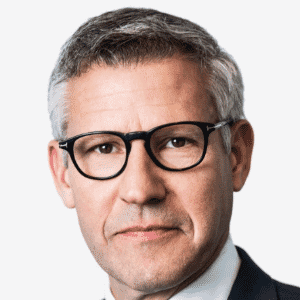Get to know Brookfield’s targets for investing in Brazil
Offices, retail, industrial, and residential are the segments in focus, says Ric Clark.
September 16, 2016Real Estate
Offices, retail, industrial, and residential. These are the real estate segments Brookfield has an eye on in Brazil. Present in the Country for a century, the group now has more than R$40 billion under management here, about a quarter of this amount in real estate. It recently bought seven A-class buildings in São Paulo and Rio de Janeiro, and is still on the lookout for opportunities. After all, it has just completed the fundraising for a real estate fund worth $9 billion, which it will distribute among the regions of the world that offer the best opportunities.
“That, I'm sure, still includes Brazil,” said Ric Clark, senior managing partner and chairman of Brookfield Property Group and Brookfield Property Partners. On the eve of leaving for São Paulo to participate in Brazil GRI 2016 as the keynote speaker, he spoke exclusively to GRI Magazine. Check it out:
Based on your experience of over 30 years in the global real estate market (particularly during the recent crisis in the American market), how do you evaluate the current real estate scenario in Brazil?
Real estate is a very capital intensive business. In an environment in which a crisis of confidence emerges, large pools of capital tend to dry up, resulting in a liquidity void. Many foreign investors, who haven’t had the history or experience investing in Brazil, took an opportunistic approach to the market when it was heated but have since decreased their investments – or even pulled out of Brazil altogether. This has provided interesting opportunities for firms like Brookfield who have had decades of experience in the market and who have made a long-term commitment to Brazil. As a well-capitalized global investor we can take a long-term view to markets which often enables us to identify opportunities that other investors can’t always spot. We always focus on longer term trends rather than short-term cycles.
With regard to individual property sectors, we are seeing some opportunities in the industrial sector, particularly since the decline in the Real has been positive for properties that support export-oriented manufacturing industries. The need to modernize has also created demand for “big box” logistics space. In our view, the office and retail sectors are struggling with oversupply right now. This, coupled with the scarcity of capital, could result in opportunities to acquire high quality assets at below replacement cost that over the long term will fare very well. While consumer confidence has hurt the housing market, home ownership incentives are a cornerstone of government policy, and we continue to be an active investor in the housing market that is targeted at the low- to middle-income sector.
When will we see its complete recovery?
There are a number of variables that will affect the pace of recovery so it’s tough to say for sure. The new government has taken initial steps designed to bring a degree of confidence back to the market, namely the appointment of a respected economic team and the beginnings of a policy platform to support economic growth. The data points coming out of our Brazilian businesses suggest signs, albeit small ones, of recovery. Though there are still a lot of uncertainties, the Bovespa’s strong performance this year reflects growing confidence. The market seems to suggest that we will see more positives in 2017. It’s worth noting, though, that in our business, we don’t tend to look at public market signals when we think about long-term investment opportunities.
Which real estate segments should lead this recovery process?
This will largely depend on how the economy – and specifically businesses – react to government policy. If the policies introduced are supportive (i.e. rate cuts), and responsible (i.e. fiscal reforms), then we would expect business confidence and investment to grow. This in turn will be good for the office and industrial sectors. As this trickles down to consumers through employment and/or wage gains, and if inflation continues to moderate, retail and housing markets should then benefit.
Would you say Brookfield is comfortable with the peculiarities of the Brazilian business environment after a century doing business here? Or does Brazil still surprise?
As you say, we have been active in Brazil for a century, and we’ve been investing specifically in real estate here for decades as well. With more than 8,000 employees across our various businesses in the country, we are very much a Brazilian company here. Since our involvement in Brazil, we have benefited from the emergence of Brazil onto the global scene, we’ve seen the evolution of Brazil’s public and private sectors, and have lived through numerous governments. Through all of that, we have learned a lot, have remained active long-term investors and are here to stay.
Brookfield has one of the largest investment platforms in Brazil, with over BRL 40 billion in assets under management in segments that are vital to the country’s economic development, including property (offices, malls and apartments), infrastructure, renewable energy and sustainable resources, and we plan to continue to grow our business here over time.
Has the recent instability and the changes that Brazil is suffering (particularly President Dilma’s impeachment process and the emergence of an interim federal government) influenced Brookfield’s appetite for investments in the country?
As I mentioned, we are long-term investors and take a bottom-up approach to looking for investment opportunities, regardless of short-term political circumstances. It’s not to say we’re not mindful of the political climate in our decision making, but we remain very focused on the long-term factors and trends, which remain favorable in Brazil.
You are leading the diversification of real estate assets (both geographically and in terms of asset types) in the Brookfield Property Group. Have the results so far been as expected? Will we see new strategy changes coming ahead?
Strategy is important to the success of any business, and that’s certainly true in real estate investing. We learned this lesson a long time ago. As both the global and domestic economies – as well as market conditions – change, the opportunity set in turn changes, so we are constantly re-assessing and updating our investment focus. For this reason we have created a multi-sector/multi-geography strategy that redirects resources (both capital and people) to where capital voids exist, and to where the best risk-adjusted opportunities can be found.
How does Brazil take part in this diversification context?
We are strong believers in the key drivers of the Brazilian story – namely that it is a large, agricultural and resource-rich country with a growing middle class – particularly as these mirror many of the factors that have driven growth in our other markets, such as Canada and Australia.
We evaluate each investment opportunity in its own right and allocate capital dynamically, based on where we find quality assets for less than replacement cost. This, for example, is reflected in our recent acquisition of seven office buildings in Sao Paulo and Rio.
Does the country's share in Brookfield’s portfolio tend to increase in the short and medium term?
We think Brazil is a great country to invest in, as long as you know what you’re doing. We’ve been active in the country for a long time and are committed to growing our business here. We stay well informed about investment opportunities as they arise, and as the size of our available capital grows, you can expect us to do more – and larger – deals in Brazil.
Are there good opportunities to invest in real estate in Brazil now? If so, where are they?
Yes, absolutely. As an example, we recently acquired a portfolio of seven Class-A office buildings in São Paulo and Rio. We have a team of real estate investment professionals on the ground in Brazil who are constantly looking at new opportunities. Our deal pipeline is very solid and again, speaks to the attractiveness of certain market sectors here.
What real estate segments/ country regions attract your attention?
We have invested sizable amounts of capital building operating platforms in almost all real estate sectors, including office, retail malls, apartments, hotels, logistics, self-storage, etc. We use these platforms to not only drive performance, but also to identify regional opportunities. We remain active in most major metropolitan areas using the same investment approach, regardless of where we are. Our current focus in Brazil is on the office, retail, industrial, and residential sectors.
Is it possible to find distressed assets? What about cheap assets because of the Real devaluation?
We are very respectful of the cyclical nature of real estate investing and, as long-term investors, a cornerstone of our strategy is to always look for compelling opportunities for high quality assets that we can acquire at below replacement cost. We tend to go where capital is scarce, as it has been in Brazil recently, but we aren’t currency traders so our investment decisions would never be based on that; it’s really about whether the asset fits our long-term investment criteria.
Recent rumors pointed out that Brookfield intends to invest $1.1 billion in Brazil, to add to more than $40 billion in assets under management here. Is this information correct? If so, what portion of these new resources tend to be allocated in ??real estate?
We recently announced the final close of a USD 14 billion global fund for investments in infrastructure, a USD 9 billion real estate fund, and a USD 4 billion private equity fund. These funds all have a “bottom-up” investment approach – in other words, our investment teams around the world look for opportunities that are measured against each other; they’re not subject to a top-down geographic allocation. All this means is that we’ll invest in geographies where we find the best opportunities, and that will, I’m sure, continue to include Brazil.
When it comes to deciding where global capital should be allocated, how do you compare Brazil, China, India and other South American countries?
In addition to Brazil, we have a sizable real estate team in India and are beginning to build our presence in China. While we have made investments in infrastructure and renewable power in other South American countries, we haven’t yet made real estate investments outside of Brazil. It is worth noting that we benefit from synergies across geographies. For example, we are one of the largest office landlords in the world and have great relationships with a sizable international tenant base. These clients tend to move with us as we expand our holdings across the world.
Your father and grandfather were active in real estate markets and you grew up in this culture. If you had to choose now, would you pick the real estate market again?
Absolutely! I've been having a lot of fun helping Brookfield build its global business, and I honestly enjoy all aspects of the business. Since I can't sing or play a musical instrument, I'm going to keep doing this real estate thing.
In your opinion, is the real estate market still attractive for young professionals?
Definitely – and becoming more so. As a business, real estate was a lot less sophisticated when I started. It has become much more professional, and offers a career in which smart, young, analytical people can not only thrive but have a lot of fun along the way. I'm still working on getting my daughters interested in the business…
You will be the keynote speaker of Brazil GRI 2016. Who do you expect to find in the event and what will your message to the Brazilian players focus on?
I expect I’ll meet the main real estate players in the country, and I’m looking forward to an important exchange of ideas. This industry is all about personal connections. My main message is that we are very optimistic on Brazil. It’s a great country with great long-term prospects that has been through other crises over the years, but has always shown its resilience. Investing in Brazil requires patience and commitment. Companies like Brookfield that have those will, I’m sure, see positive results over the long term.
By Giovanna Carnio, editor-in-chief
“That, I'm sure, still includes Brazil,” said Ric Clark, senior managing partner and chairman of Brookfield Property Group and Brookfield Property Partners. On the eve of leaving for São Paulo to participate in Brazil GRI 2016 as the keynote speaker, he spoke exclusively to GRI Magazine. Check it out:
Based on your experience of over 30 years in the global real estate market (particularly during the recent crisis in the American market), how do you evaluate the current real estate scenario in Brazil?
Real estate is a very capital intensive business. In an environment in which a crisis of confidence emerges, large pools of capital tend to dry up, resulting in a liquidity void. Many foreign investors, who haven’t had the history or experience investing in Brazil, took an opportunistic approach to the market when it was heated but have since decreased their investments – or even pulled out of Brazil altogether. This has provided interesting opportunities for firms like Brookfield who have had decades of experience in the market and who have made a long-term commitment to Brazil. As a well-capitalized global investor we can take a long-term view to markets which often enables us to identify opportunities that other investors can’t always spot. We always focus on longer term trends rather than short-term cycles.
With regard to individual property sectors, we are seeing some opportunities in the industrial sector, particularly since the decline in the Real has been positive for properties that support export-oriented manufacturing industries. The need to modernize has also created demand for “big box” logistics space. In our view, the office and retail sectors are struggling with oversupply right now. This, coupled with the scarcity of capital, could result in opportunities to acquire high quality assets at below replacement cost that over the long term will fare very well. While consumer confidence has hurt the housing market, home ownership incentives are a cornerstone of government policy, and we continue to be an active investor in the housing market that is targeted at the low- to middle-income sector.
When will we see its complete recovery?
There are a number of variables that will affect the pace of recovery so it’s tough to say for sure. The new government has taken initial steps designed to bring a degree of confidence back to the market, namely the appointment of a respected economic team and the beginnings of a policy platform to support economic growth. The data points coming out of our Brazilian businesses suggest signs, albeit small ones, of recovery. Though there are still a lot of uncertainties, the Bovespa’s strong performance this year reflects growing confidence. The market seems to suggest that we will see more positives in 2017. It’s worth noting, though, that in our business, we don’t tend to look at public market signals when we think about long-term investment opportunities.
Which real estate segments should lead this recovery process?
This will largely depend on how the economy – and specifically businesses – react to government policy. If the policies introduced are supportive (i.e. rate cuts), and responsible (i.e. fiscal reforms), then we would expect business confidence and investment to grow. This in turn will be good for the office and industrial sectors. As this trickles down to consumers through employment and/or wage gains, and if inflation continues to moderate, retail and housing markets should then benefit.
Would you say Brookfield is comfortable with the peculiarities of the Brazilian business environment after a century doing business here? Or does Brazil still surprise?
As you say, we have been active in Brazil for a century, and we’ve been investing specifically in real estate here for decades as well. With more than 8,000 employees across our various businesses in the country, we are very much a Brazilian company here. Since our involvement in Brazil, we have benefited from the emergence of Brazil onto the global scene, we’ve seen the evolution of Brazil’s public and private sectors, and have lived through numerous governments. Through all of that, we have learned a lot, have remained active long-term investors and are here to stay.
Brookfield has one of the largest investment platforms in Brazil, with over BRL 40 billion in assets under management in segments that are vital to the country’s economic development, including property (offices, malls and apartments), infrastructure, renewable energy and sustainable resources, and we plan to continue to grow our business here over time.
Has the recent instability and the changes that Brazil is suffering (particularly President Dilma’s impeachment process and the emergence of an interim federal government) influenced Brookfield’s appetite for investments in the country?
As I mentioned, we are long-term investors and take a bottom-up approach to looking for investment opportunities, regardless of short-term political circumstances. It’s not to say we’re not mindful of the political climate in our decision making, but we remain very focused on the long-term factors and trends, which remain favorable in Brazil.
You are leading the diversification of real estate assets (both geographically and in terms of asset types) in the Brookfield Property Group. Have the results so far been as expected? Will we see new strategy changes coming ahead?
Strategy is important to the success of any business, and that’s certainly true in real estate investing. We learned this lesson a long time ago. As both the global and domestic economies – as well as market conditions – change, the opportunity set in turn changes, so we are constantly re-assessing and updating our investment focus. For this reason we have created a multi-sector/multi-geography strategy that redirects resources (both capital and people) to where capital voids exist, and to where the best risk-adjusted opportunities can be found.
How does Brazil take part in this diversification context?
We are strong believers in the key drivers of the Brazilian story – namely that it is a large, agricultural and resource-rich country with a growing middle class – particularly as these mirror many of the factors that have driven growth in our other markets, such as Canada and Australia.
We evaluate each investment opportunity in its own right and allocate capital dynamically, based on where we find quality assets for less than replacement cost. This, for example, is reflected in our recent acquisition of seven office buildings in Sao Paulo and Rio.
Does the country's share in Brookfield’s portfolio tend to increase in the short and medium term?
We think Brazil is a great country to invest in, as long as you know what you’re doing. We’ve been active in the country for a long time and are committed to growing our business here. We stay well informed about investment opportunities as they arise, and as the size of our available capital grows, you can expect us to do more – and larger – deals in Brazil.
Are there good opportunities to invest in real estate in Brazil now? If so, where are they?
Yes, absolutely. As an example, we recently acquired a portfolio of seven Class-A office buildings in São Paulo and Rio. We have a team of real estate investment professionals on the ground in Brazil who are constantly looking at new opportunities. Our deal pipeline is very solid and again, speaks to the attractiveness of certain market sectors here.
What real estate segments/ country regions attract your attention?
We have invested sizable amounts of capital building operating platforms in almost all real estate sectors, including office, retail malls, apartments, hotels, logistics, self-storage, etc. We use these platforms to not only drive performance, but also to identify regional opportunities. We remain active in most major metropolitan areas using the same investment approach, regardless of where we are. Our current focus in Brazil is on the office, retail, industrial, and residential sectors.
Is it possible to find distressed assets? What about cheap assets because of the Real devaluation?
We are very respectful of the cyclical nature of real estate investing and, as long-term investors, a cornerstone of our strategy is to always look for compelling opportunities for high quality assets that we can acquire at below replacement cost. We tend to go where capital is scarce, as it has been in Brazil recently, but we aren’t currency traders so our investment decisions would never be based on that; it’s really about whether the asset fits our long-term investment criteria.
Recent rumors pointed out that Brookfield intends to invest $1.1 billion in Brazil, to add to more than $40 billion in assets under management here. Is this information correct? If so, what portion of these new resources tend to be allocated in ??real estate?
We recently announced the final close of a USD 14 billion global fund for investments in infrastructure, a USD 9 billion real estate fund, and a USD 4 billion private equity fund. These funds all have a “bottom-up” investment approach – in other words, our investment teams around the world look for opportunities that are measured against each other; they’re not subject to a top-down geographic allocation. All this means is that we’ll invest in geographies where we find the best opportunities, and that will, I’m sure, continue to include Brazil.
When it comes to deciding where global capital should be allocated, how do you compare Brazil, China, India and other South American countries?
In addition to Brazil, we have a sizable real estate team in India and are beginning to build our presence in China. While we have made investments in infrastructure and renewable power in other South American countries, we haven’t yet made real estate investments outside of Brazil. It is worth noting that we benefit from synergies across geographies. For example, we are one of the largest office landlords in the world and have great relationships with a sizable international tenant base. These clients tend to move with us as we expand our holdings across the world.
Your father and grandfather were active in real estate markets and you grew up in this culture. If you had to choose now, would you pick the real estate market again?
Absolutely! I've been having a lot of fun helping Brookfield build its global business, and I honestly enjoy all aspects of the business. Since I can't sing or play a musical instrument, I'm going to keep doing this real estate thing.
In your opinion, is the real estate market still attractive for young professionals?
Definitely – and becoming more so. As a business, real estate was a lot less sophisticated when I started. It has become much more professional, and offers a career in which smart, young, analytical people can not only thrive but have a lot of fun along the way. I'm still working on getting my daughters interested in the business…
You will be the keynote speaker of Brazil GRI 2016. Who do you expect to find in the event and what will your message to the Brazilian players focus on?
I expect I’ll meet the main real estate players in the country, and I’m looking forward to an important exchange of ideas. This industry is all about personal connections. My main message is that we are very optimistic on Brazil. It’s a great country with great long-term prospects that has been through other crises over the years, but has always shown its resilience. Investing in Brazil requires patience and commitment. Companies like Brookfield that have those will, I’m sure, see positive results over the long term.
By Giovanna Carnio, editor-in-chief
